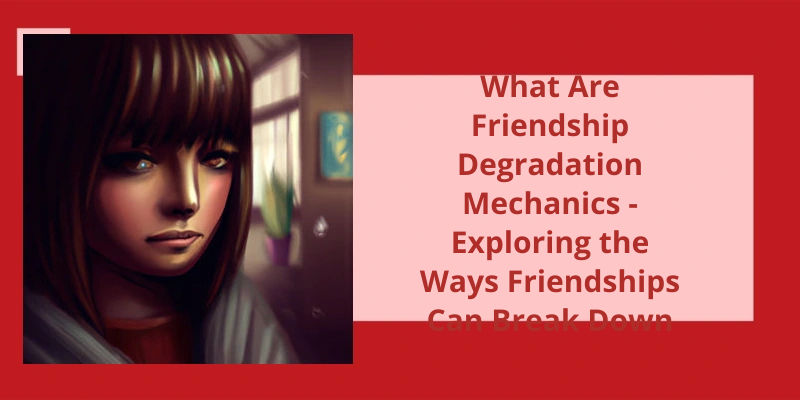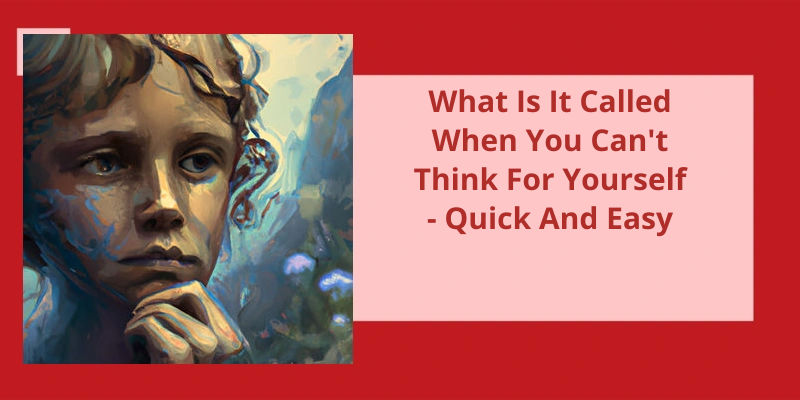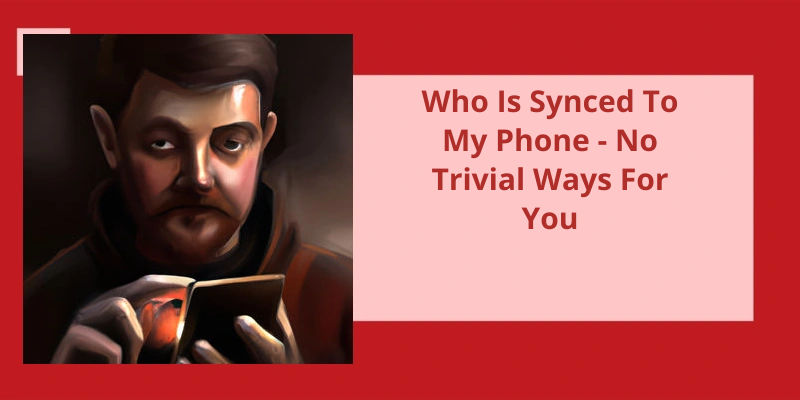This phenomenon occurs due to a combination of factors, including executive dysfunction, forgetfulness, and an inability to accurately perceive the passage of time. As a result, individuals with ADHD may struggle to maintain regular communication with friends, leading to a gradual breakdown of the friendship over time. While this can be frustrating and emotionally challenging, it’s important to understand that it isn’t a personal failing, but rather a symptom of the disorder.
What Are Friendship Maintenance Behaviors Examples?
Friendship maintenance behaviors also include acts of kindness, such as remembering important dates, offering congratulations, and expressing sympathy during difficult times. Friends may also engage in regular communication, whether that be through phone calls, text messages, or social media. Quality time spent together, whether in person or virtually, is also crucial in maintaining friendships.
Another important aspect of friendship maintenance is reciprocity. This means both friends contribute equally to the relationship, whether that be through initiating plans, offering support, or sharing personal information. When one friend is consistently doing all the work in the relationship, it can become strained and eventually lead to the friendship fizzling out.
Trust and honesty are also crucial ingredients in maintaining a healthy friendship. Friends must be able to confide in one another and trust that information shared won’t be used against them.
By engaging in these behaviors, friends can strengthen their bond and reap the benefits of a supportive and fulfilling relationship.
Friendships are an integral part of our lives, but just like any other relationship, they can go through ups and downs. While some friendships may last a lifetime, others may disintegrate over time due to various reasons. This process of friendship dissolution can be painful and difficult to navigate. In this article, we will explore the concept of friendship dissolution, it’s causes, and how to cope with the end of a friendship.
What Is Friendship Dissolution?
Friendship dissolution is a phenomenon that can occur in any stage of a friendship. It can happen gradually, over a long period of time, or suddenly, with just one or two major events. It could be due to a clash of personalities, differing priorities or values, or simply growing apart.
Losing a friend can be just as devastating as a romantic break-up, if not more so, as friends are often considered to be the family we choose for ourselves. The loss of a friend can result in feelings of isolation, rejection, and grief.
This can happen when one friend becomes the source of tension or conflict within the group, causing other friends to take sides or distance themselves from the group as a whole.
As with any relationship, communication is key in preventing friendship dissolution. If you’re experiencing issues with a friend, it’s important to talk openly and honestly about how you’re feeling and what you can both do to address any underlying issues. This may require compromise, forgiveness, or even just a change in perspective.
While it can be difficult and painful, it’s possible to move on and find new friends who share your interests, values, and priorities. Ultimately, the end of a friendship can be an opportunity for personal growth and the chance to develop new and meaningful connections with others.
How to Cope When a Friend Decides to End the Friendship.
- Give yourself time to process your emotions and feelings about the situation.
- Reach out to other friends or loved ones for support and understanding.
- Consider if there were any warning signs or red flags in the friendship that you may have overlooked.
- Reflect on how the friendship impacted your life and what you learned from it.
- Avoid bad-mouthing or spreading rumors about your former friend.
- Focus on self-care activities such as exercise, meditation, or therapy to help with any feelings of sadness or loss.
- If possible, try to have a respectful and honest conversation with your friend to gain closure.
- Recognize that friendships can change and evolve over time and that it’s okay to move on.
As humans, we rely on social interactions for our mental and emotional well-being. Friendships play a crucial role in our lives and are an essential aspect of our social support system. However, maintaining friendships can be challenging and requires effort and dedication. To sustain meaningful and satisfying relationships, individuals engage in various strategies and routine behaviors. In this article, we will explore the concept of friendship maintenance in detail and discuss some effective ways to keep our friendships strong.
What Is Friendship Maintenance?
Interaction involves the frequency and quality of communication between friends. This includes the amount of time spent together, as well as the depth of conversation exchanged. Positive communication is also important to maintaining friendships, as it helps to reinforce the bond between friends. This can be through both verbal and nonverbal cues, such as offering compliments or showing affection.
Supportiveness is another key component of friendship maintenance, as it involves providing emotional or practical assistance to a friend who needs it. This can range from simply being a good listener to helping a friend move or lending them money in times of need. Friends who exhibit high levels of supportiveness are often seen as dependable and trustworthy, which can strengthen the bond between them.
Openness is another important component of FM, and refers to how much personal information and feelings friends are willing to share with each other. This can create a sense of intimacy and vulnerability, which can further strengthen the bond between friends. However, it’s important for friends to also respect each other’s boundaries and not demand too much openness if one friend isn’t comfortable with it.
Finally, shared activities and experiences can also play a role in friendship maintenance. This can include things like going on trips together, attending events or concerts, or simply enjoying hobbies or interests in common. These shared experiences can create positive memories and help to reinforce the bond between friends.
It requires effort and commitment from both friends in order to sustain a satisfying relationship. By engaging in interaction, positivity, supportiveness, openness, and shared experiences, individuals can foster strong and lasting friendships that stand the test of time.
Source: Friendship Maintenance Mediates the Relationship Between …
Friendships aren’t always meant to last forever. They may come to an end due to a variety of reasons, ranging from lack of common interests to betrayal or romantic involvement. In this article, we will explore some common reasons why friendships may break and how to cope with the loss of a friend.
What Can Cause a Friendship to Break?
Friendship is one of the most cherished and valuable aspects of our lives, but it can also be quite fragile. There are several factors that can cause a friendship to break, and it’s important to recognize them in order to avoid them. One common reason why friendships end is due to a lack of common interests. Friendships often begin when people share a common hobby or interest, but if those interests change or diverge, the friendship can suffer.
Another major factor is a lack of time. As people grow older, they often get busier with work, family, and other obligations, leaving less time to spend with friends. This can lead to feelings of neglect or abandonment, and can ultimately cause friendships to wither away. Mismatched expectations can also play a role. If one friend expects a greater level of commitment or intimacy than the other, it can lead to hurt feelings and a breakdown in the relationship.
Betrayal is another common cause of friendship breakdown. Whether it’s a breach of trust, a hurtful comment, or some other action that causes the friend to feel betrayed, it can be difficult to repair the damage. Similarly, if one person feels that the friendship is one-sided – that they’re always giving and never receiving – it can cause resentment and frustration.
Inability to repair after conflict is another factor that can cause a friendship to break. Conflict is a natural part of any relationship, but if one or both parties are unwilling or unable to work through it, the friendship may not survive. Romantic involvement is yet another reason for friendship to break. If one friend develops romantic feelings for the other and those feelings aren’t reciprocated, it can create tension and awkwardness that may be difficult to navigate.
Finally, perceptions of friends and family can also play a role. If a friends family or significant other doesn’t approve of the other friend, it can create tension and cause the relationship to suffer. Similarly, if a friend is seen as a negative influence or a bad influence on the others life, it can create resentment and cause the friendship to dissolve. Ultimately, friendships are complex relationships that require effort, communication, and a willingness to work through challenges. By recognizing the factors that can cause them to break, we can take steps to preserve and strengthen these important connections.
The Role of Jealousy and Envy in Breaking Friendships
- Jealousy and envy can be detrimental to friendships
- When a friend is jealous or envious of another friend, it can cause tension and resentment
- These negative emotions can lead to arguments and ultimately break the friendship
- It’s important to communicate openly with friends about any jealous or envious feelings that arise
- Working through these emotions together can strengthen the friendship instead of breaking it
- It’s also important to recognize when a friendship may be toxic and it’s time to move on
Now that we know the underlying factors that impact friendships, let’s take a closer look at each one and understand how they play a crucial role in the formation and maintenance of a strong friendship.
What Are 5 Factors That Impact Friendships?
Friendship is a vital aspect of human life, and it serves as a support system that enables us to navigate the complexities of daily life. However, several factors influence how people form friendships and the strength of those bonds. One of the most important factors is reciprocal candor. In a good friendship, both parties must be open and honest with each other, sharing their emotions, thoughts, and fears without judgment or shame. Reciprocal candor fosters trust and deepens the connection between people, creating a solid foundation for a long-lasting friendship.
Another critical factor that impacts friendships is mutual interests. When two people share common hobbies or activities, it allows them to bond and spend quality time doing things they both enjoy. For instance, people who like sports may find it easy to form a friendship with someone who shares the same passion. Mutual interests also provide opportunities for personal growth, learning, and exploring new ideas.
Personableness is another factor that influences friendships. This refers to the overall likability, warmth, and charisma of an individual. People who’re approachable, friendly, and easy-going tend to make friends more easily than those who’re reserved or aggressive. Additionally, people who’re good listeners and offer emotional support can quickly build strong friendships based on trust and understanding.
Another critical element of friendship is similarity. People tend to be drawn to those who share similar values, beliefs, and perspectives. When two people have similar worldviews, they can relate to each other more easily, reducing misunderstandings and conflicts. Moreover, shared experiences and backgrounds can help cement a friendship, as individuals feel understood and validated by someone who’s gone through similar experiences.
Finally, physical attraction can impact friendships, too. While physical attraction doesn’t necessarily mean sexual attraction, a persons physical appearance, grooming, and style can influence how others perceive them and their potential to form friendships. People are generally drawn to those who’ve attractive features and a pleasing personality. However, physical attraction alone isn’t enough to sustain a friendship, so other factors like mutual interests, similar values, and reciprocal candor are essential in building a long-lasting friendship. friendship is a complex and multi-faceted relationship, with several factors that influence it’s formation, development, and strength.
When a friendship abruptly ends, it can be a difficult and emotional experience. Losing someone you once considered a close friend can leave a void in your life and make you feel isolated. However, it’s important to remember that there are ways to cope and move forward. This transition period can be a time for self-reflection, personal growth, and reestablishing connections with loved ones and activities that bring you joy. Seeking the help of a therapist can also provide valuable support as you navigate the changes and emotions that come with ending a friendship.
When a Friendship Abruptly Ends?
Another challenge is dealing with the loss of shared memories and experiences. You may find yourself feeling lost without the person who was once your go-to for everything. It’s important to acknowledge that the memories will always be a part of your past, but it’s also important to start creating new memories and experiences without them. Explore new hobbies, take a trip, or try new foods – anything to create new memories that are just yours.
In addition to the loss of shared experiences, you may also feel a sense of betrayal or resentment towards the person who ended the friendship. It’s important to acknowledge these feelings, but it’s also important to work on forgiving the person and letting go of any resentment. Holding onto negative feelings only hurts you in the long run and prevents you from moving on.
Another challenge of a friendship ending is dealing with the rest of your social circle. You may feel like youve been cut off from a larger group or like you’ve to choose between sides. It’s important to remember that your other friendships shouldn’t be affected by this one ending and to focus on maintaining those relationships. Avoid gossiping or bad-mouthing the person who ended the friendship to mutual friends – it only creates more drama and can damage your other relationships.
Lastly, it’s important to take the time to discover what you truly want and need from a friendship. Reflect on what worked and didnt work in the friendship that ended and use that knowledge to set boundaries and expectations for future friendships. Remember that it’s okay to outgrow friendships and that it’s better to have a few genuine, fulfilling friendships than many shallow ones. Focus on finding people who accept and support you for who you are, rather than trying to be someone youre not to fit in.
Conclusion
This can lead to a breakdown in the relationship over time, as the other person may feel neglected or unimportant in the friendship. By creating a supportive network of friends who understand and accept our unique strengths and challenges, individuals with ADHD can experience the joy and fulfillment that comes from genuine human connection.






